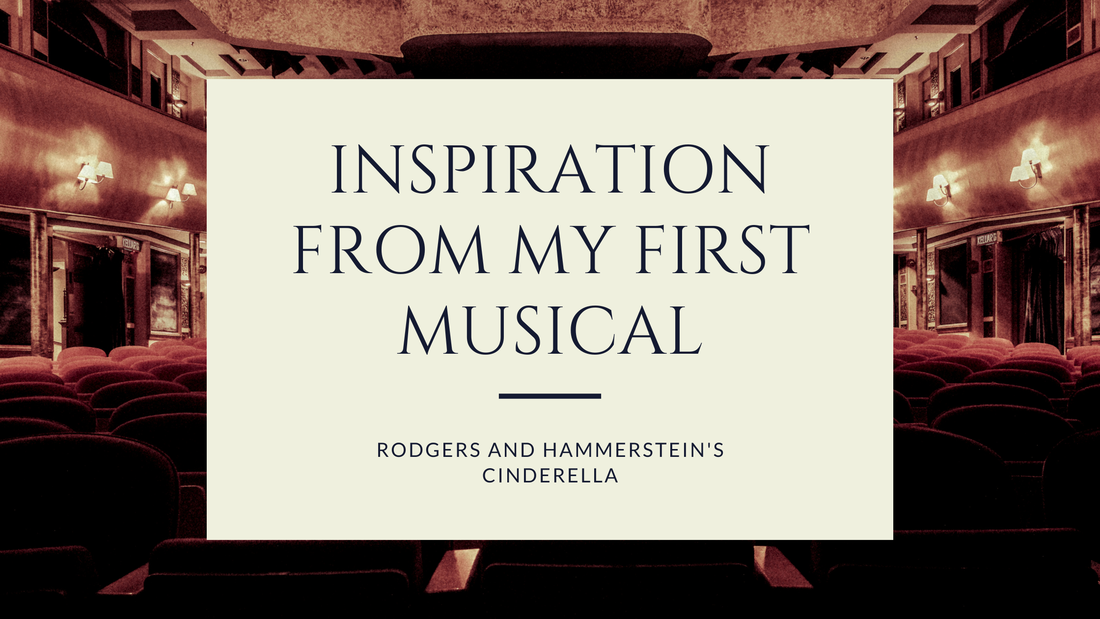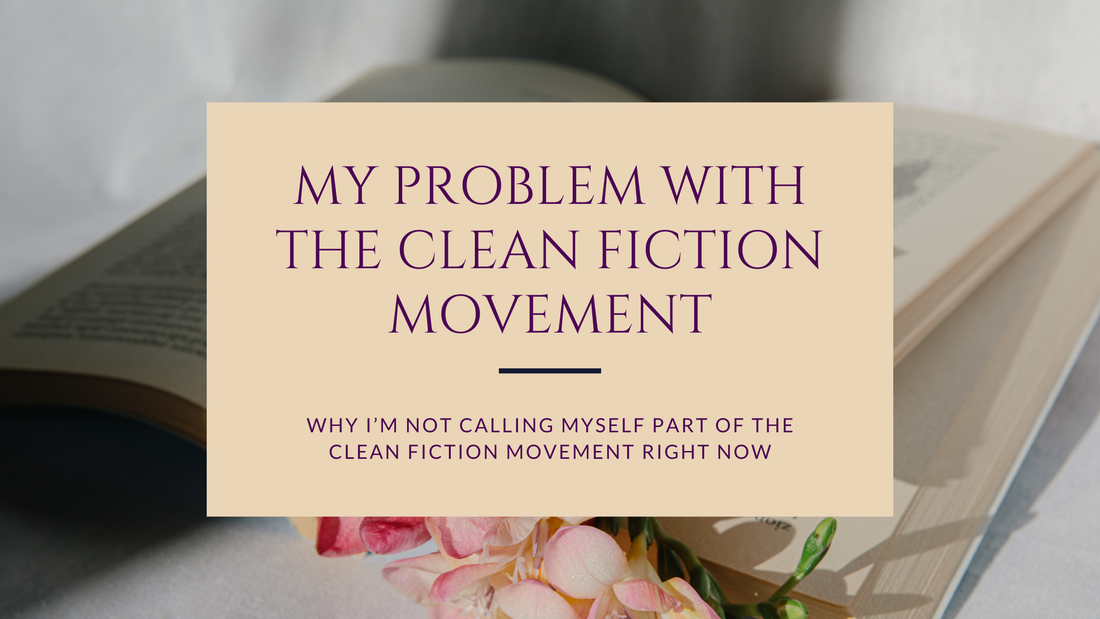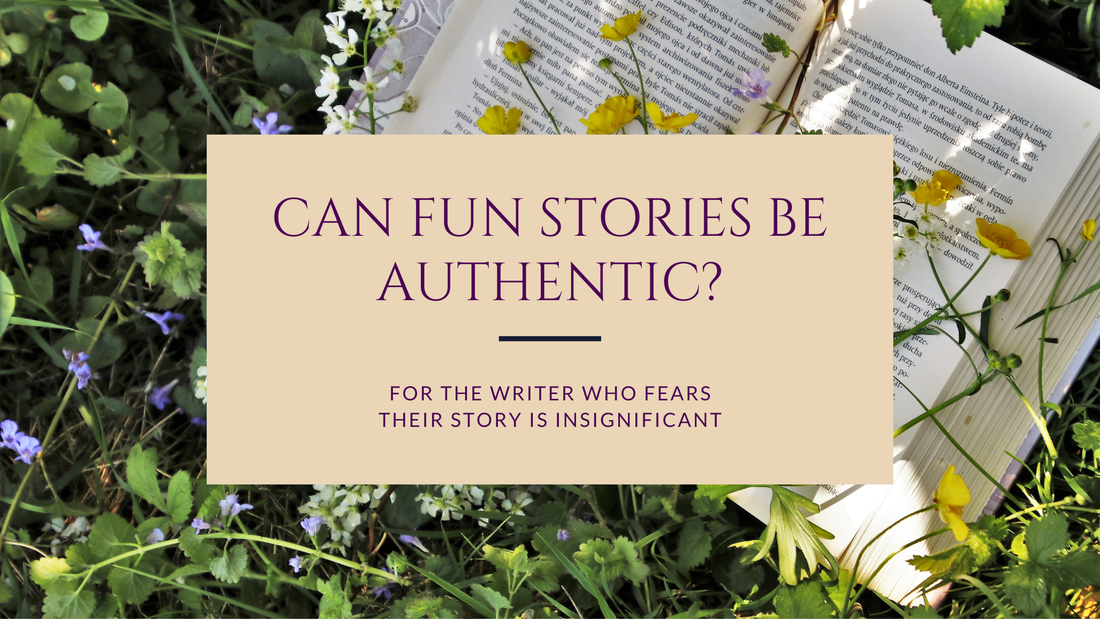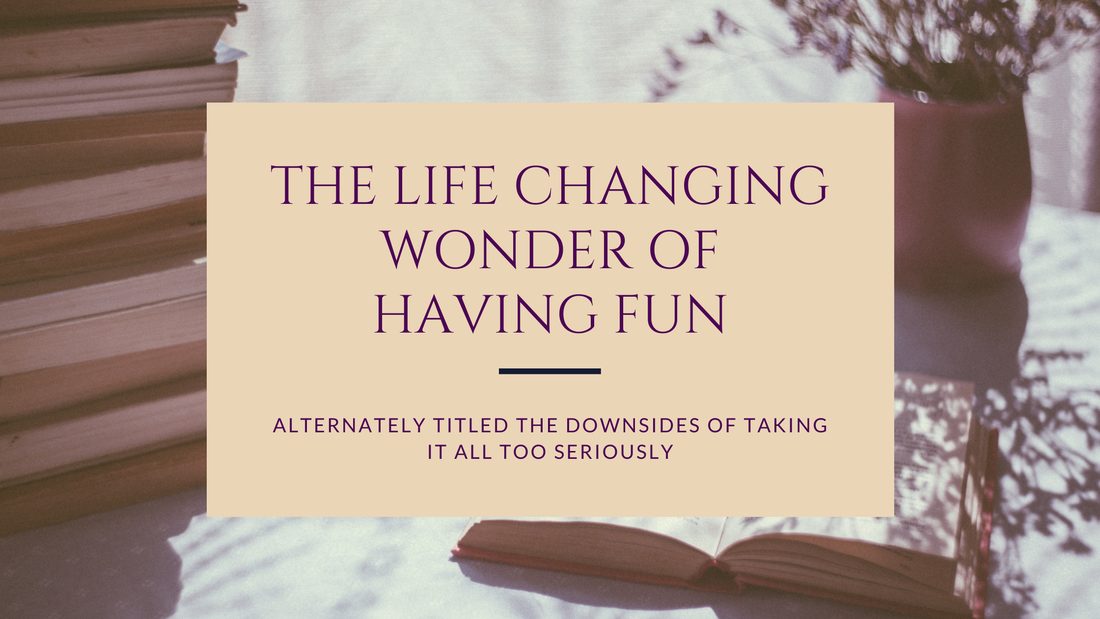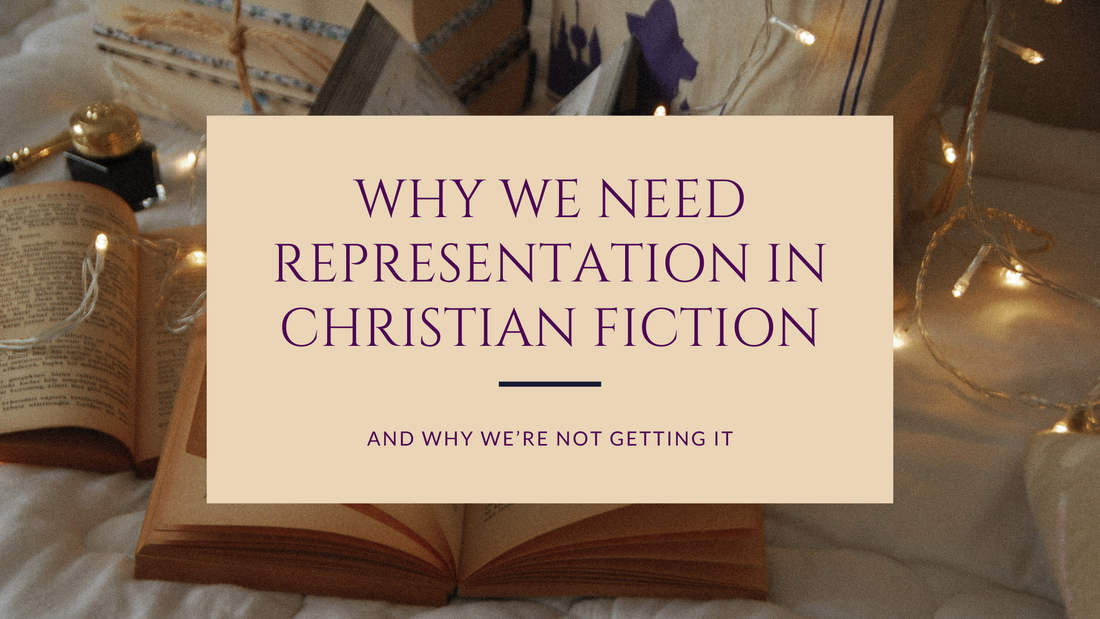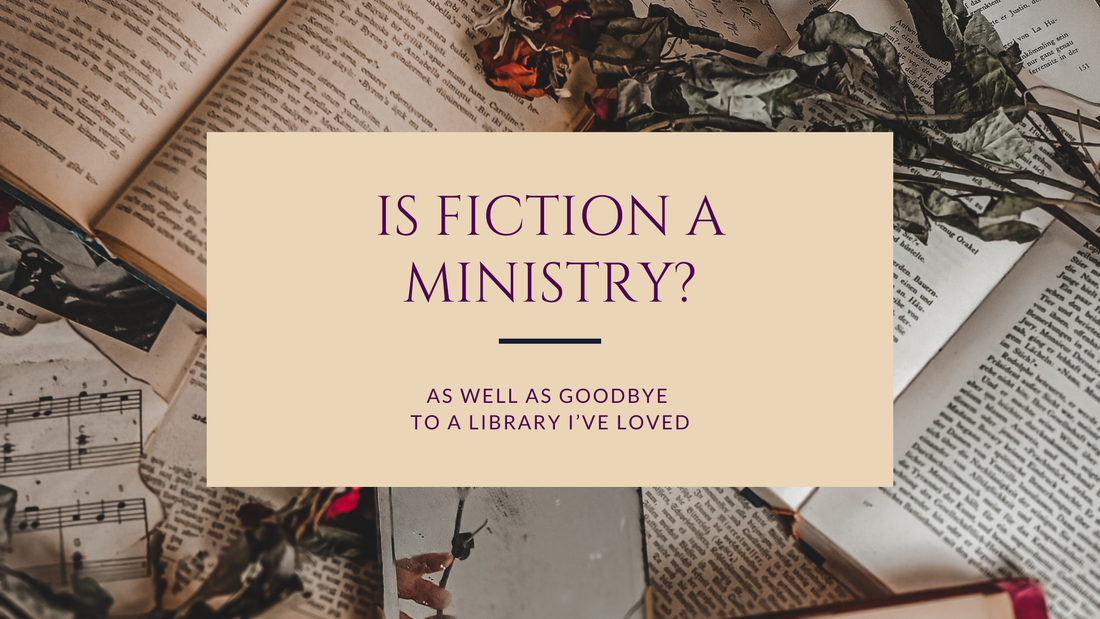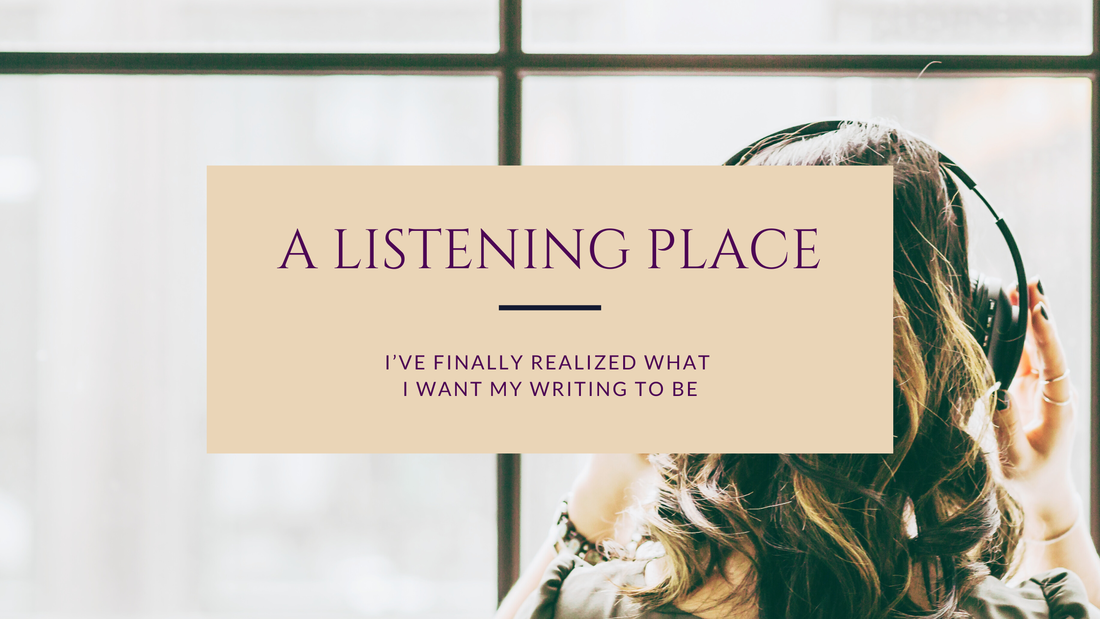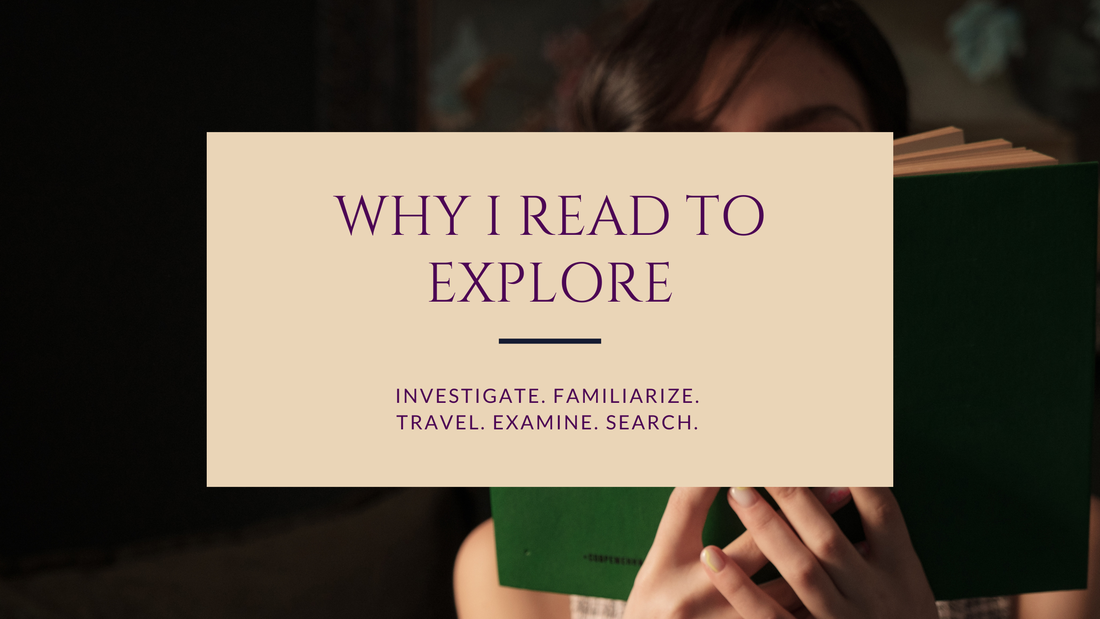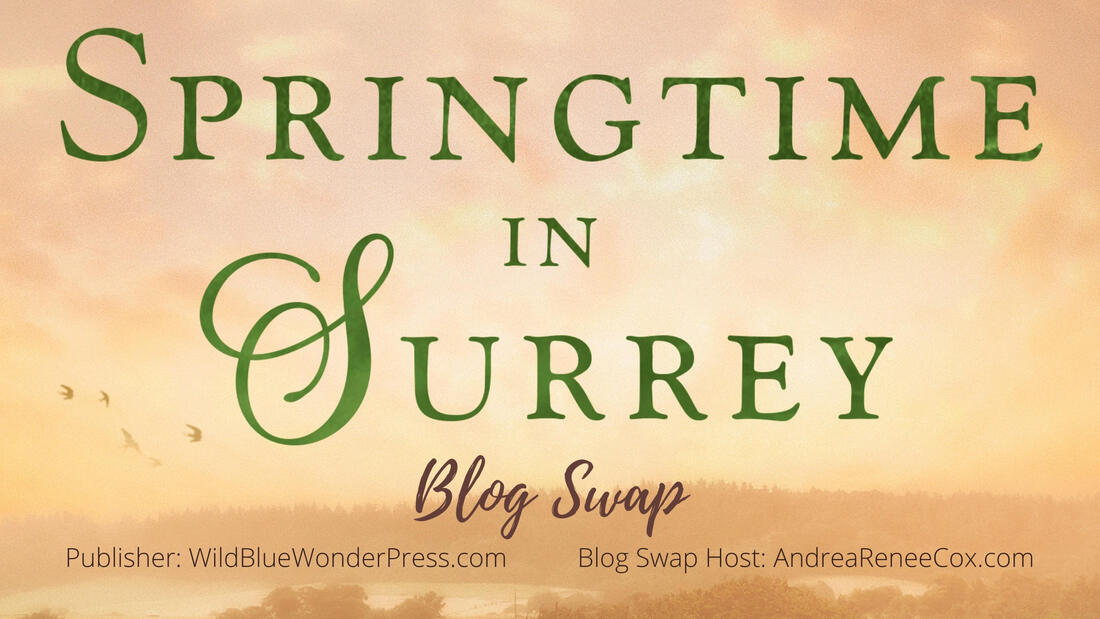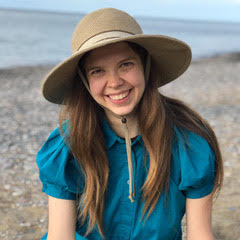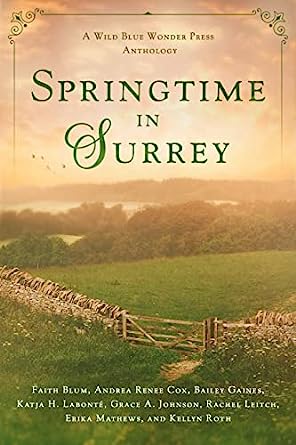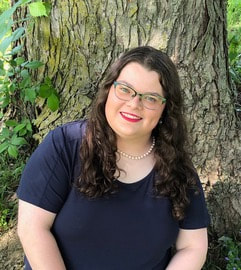|
And here we are, at part two. Last month, I dove into my thought on art, calling, and loving God. Now I’m here to think about loving people through messy fiction. Both these posts were inspired by my post back in April about my problem with the clean fiction movement, where I wrote about how I don’t feel the clean fiction movement loves readers well. So what is “messy” fiction able to do that clean fiction can’t? And how does that all come down to loving people well, and ultimately loving God well? *in Imagine Dragons voice* First things first-- Why is it important to love people? I mean, God said so, so it’s kind of important. But beyond that, it always amazes me how many people—whether they are Christian or not—have been hurt by a church or by other Christians. Some of that is always going to come with being human. But when Jesus gave those two commands—love God and love people—He put them on par with each other. I talked about in my last post how loving God, especially in something as creative and artistic as writing, can be hard to wrap our heads around. It’s just one of those concepts that’s out there and sometimes doesn’t quite feel tangible. Loving people on the other hand feels like the practical side of the concept. And in a way, it is. Loving people is how we love God. And loving God is how we love people. We can’t have one completely without the other one. We might be super kind to others, but if you’re not loving God, it will always be missing something. On the other hand, you might be super close to God, but if you’re not loving people, something will always be holding you back. They’re not exclusive concepts. You have to have them both. And people tend to get hurt when you have one but not the other. So how can a messy story do that? How does a messy story show love for someone else? How do I decide if something is helping me love others well? For me, a story that loves someone well is a story that makes a reader feel seen or included. It’s a story where even if I don’t have shared experience with the character, it helps me understand others in my life a little bit better. It’s a story that represents everyone and tackles the messy topics. It’s writers who are willing to be a little bit uncomfortable with the topics they broach and the words they put to paper. They’re stories that make sure everyone has the chance to see themselves in a Christian story, no matter their background. But these stories don’t shy away from telling the truth. Providing entertainment without anything deeper would be a disservice to the reader. And avoiding hard truths is allowing them to walk into danger unarmed. It’s a writer that pulls truth from God alone, not their own opinions or stereotypes. On the other hand, it doesn’t beat the readers over the head with whatever the author decided is truth. It communicates its truth in thoughtful ways, allowing the reader to draw their own conclusions. In the best cases, it allows the reader to take their own paths of thoughts with God. They’re stories that shake the comfortable. Within Christian fiction, it’s going to be the authors that challenge stereotypes and make readers think. Within general fiction, it’s going to be the authors that unapologetically include God, even if their approach is more subtle and nuanced. These stories go where their readers go. They stay there with them. Maybe they point out a thing or two along the path. And they wait even while the reader struggles, no matter how long that may be. These are the stories that have had an impact on my life. These are the stories that are still impacting me to this day. And these are the stories I want to write.
0 Comments
For a long time, I struggled with referring to my writing as clean fiction. Don’t get me wrong—I do write mostly clean. For me, that looks like avoiding language and graphic sexual content in my books. But then I’d see posts from the clean fiction community where they would describe any such content (language, sexual content, violence/gore, and/or sensitive topics such as mental health, social issues or trauma) as MORALLY WRONG and a GRAVE SIN. But I hadn’t opted out of writing language and sex because I believed it was a GRAVE SIN. I just didn’t like reading it. So I didn’t write it either. Full stop. And the longer I interacted with book reviews from the clean fiction community, the more I realized that I was cool with a lot of things they weren’t. For instance, I highly recommend The Knife of Never Letting Go by Patrick Ness. It’s one of the best novels I’ve read dealing with toxic gender roles and religious trauma. It also so happens to have frequent language and some extremely intense violence and gore. In the circles of writers I’m in, I interact with people everyday who would clutch their pearls that I would ever suggest reading such a book. And I also interact with people who have watched and recommended far more explicit, more than I personally would read or watch. If I’m being honest? I relate way more to the people who are okay with a little bit more in their fiction. I struggle to relate with the clean fiction movement. Because, sure, my fiction doesn’t have language or sex. But that doesn’t mean I won’t deal with tough topics like abuse and mental health and social issues. That doesn’t mean I won’t have the occasional gory scene, or even go a little bit dark for the purposes of the story. And that doesn’t mean that as I grow and develop my beliefs and standards more that I won’t explore topics that maybe I thought I wouldn’t. The clean fiction movement has put us all at a disadvantage. I went into this back in my January blog post where I discussed representation in Christian fiction. I told the story of an interaction with a clean fiction reader who was outraged that a Christian YA fantasy had a character with implied sexual trauma. A lot of us, especially if you grew up Christian or homeschooled, grew up in that movement. And that’s not necessarily bad. Especially before you’ve figured out your worldview for yourself, it’s important to have some reliable help choosing what stays and what goes. But some of us were taught that ALL books that contained a certain content (whether that be language, sex, gore, magic, or any combination of the above) were evil. (And it might be for you, more on that later.) As a result, I at least developed an unhealthy stigma around books that broke those molds. I couldn’t tell you why I thought they were bad. I just knew I would undoubtedly burn in hell if I even looked at the cover too long. Is the clean fiction movement all bad then? Not at all. There’s a lot of people within the movement that recognize that their standards aren’t for everyone and that authenticity trumps cleanliness. But as a whole, the clean fiction movement, as it stands right now, exists less to tell true stories without harsh content, and more to allow readers to filter out the hard things they don’t want to think about. It looks good, though! They can display their books free of sexual content with their pretty covers, usually with flowers and cottagecore and such. But the clean fiction movement has become about supporting untrue stories. Hey. Am I saying you have to have sex and cursing to tell a true story? Not at all. I’ve got all sorts of authentic stories on my shelves that just so happen to be clean. But those stories are authentic because they were willing to wade into the hard and sometimes messy things. The majority of the clean fiction community is not willing to do that anymore. They’re more concerned with how much “spice” is in a book and what the curse count is. Please note that I am NOT referring to all clean fiction authors. I wrote an anthology with clean fiction authors who all grapple with hard things in their stories. (Kellyn Roth especially is an amazing author who deals with sexual issues and mental health in her clean fiction, and I highly recommend giving her a follow.) And I’m here to remind you that I do still write clean fiction myself! My goal is to write authentic stories that are free of ignorant stereotypes and harsh content. Recently, I read a question and answer post where someone asked if a particular TV show was okay for them as a Christian. (The show in question had fantasy-world magic and dealt with social issues around diversity.) I related a lot. As I grew up and branched out and began defining my standards for myself, I worried so much that a book I chose to read or to not read would end up sending me to hell. I didn’t feel like I could trust my conscience (which God gave me!) and know when to put a book down. Was I sinful and perverse because I could read more content than my peers without feeling guilty? Of course, the post got a myriad of answers. Some said that what you read and watch doesn’t affect anything. Which I don’t think is true. I’ve written time and again about how fiction and how it represents real world issues does affect how we think about an issue, and in turn, it shapes the world we live in. And of course, the clean fiction community swooped to the “rescue,” saying that they definitely shouldn’t mess around with such things and that it is a gateway to hell. But there was only one answer that really stuck with me. And I think it defines really well what I’m trying to do with my fiction. I’m going to paraphrase it, since it was a long answer. They pointed out that Jesus gave us two commands—love God and love other people. So, they reasoned, you can sort out whether you should be reading or watching something and separate it from the hellfire anxiety by asking yourself whether the story in question is encouraging you to love God or love other people. Thinking about that question might lead you to read cleaner fiction than you normally would. Or it might lead you to try some shows or books that you ordinarily wouldn’t. In my case, answering that question is what has led me to largely avoid writing language and graphic sexual content. But it’s also led me to include other things, other hard things such as abuse and mental health and trauma. I think that concept has really set me free. I finally understand why I’ve comfortable with one book and tossing out another one even though they have the exact same content level, sometimes even when both of them are clean books. Can we face it? A book can be as clean as can be and not encourage you to love God and love others. And sometimes, a book that’s a little messy can encourage you to love God and love others. So, long story short, I’m still not on good terms with that clean fiction label. I write books that encourage you to love God and others. Maybe those books just so happen to be clean. But the squeaky clean isn’t going to be what defines it. It’s going to be defined by the hard and messy. If you’d like to read the post that really got me started thinking about this, check out @word.journey.hope.ann on Instagram. Story Embers also has some excellent resources on their website and Instagram page that get into the nitty-gritty of the issue as well. Last month, I wrote about how I chose to allow myself to have fun. And it really has changed how I’m viewing life and writing. But at I’ve been thinking through those ideas, I came to another question: why do we so often assume fun things can’t be authentic or important? As a teen, I knew I wanted to write, but I wasn’t yet sure what that would look like. At the same time, I also had very strict boundaries on what I was allowed to read or watch, so I grew up with a lot of Christian films of *ahem* varying quality. There’s just not a lot of range in Christian films, you know? You can either choose “based on a true story” or “fictional person receives a fictional miracle.” That’s what I had, so that’s what I watched. I’d finish a movie and go to write . . . and I just couldn’t summon the words. I mean, that girl in the movie literally had her arm bit off by a shark. And I’m just writing my Anastasia-inspired heist story. I loved that Anastasia-inspired heist story. And I’ve loved what I’ve written afterwards. I find so much joy in those stories. But I wasn’t seeing many stories like that. So I worried my stories might not be important. Maybe they were a waste of time. Maybe someone else’s story deserved it more. Maybe my story was just too fun. And maybe, if my stories were too fun, I couldn’t glorify God with them. The thing about a lot of those Christian films I kept comparing myself to? Some of them weren’t authentic. (Please note that there were some notable exceptions to that rule.) As I became an adult, I was able to broaden my horizons and experiment with films and stories. I discovered what I really, truly liked. And I discovered what an authentic story truly looks like. (For the record, I did find quite a few authentic stories in Christian fiction.) And they were fun. How could that be? First off, don’t get me wrong. There is absolutely a time to be serious. A girl getting her arm bitten off by a shark isn’t fun, nor is it funny, and it shouldn’t be treated as such. I’ve written before about how I want to tackle some really serious topics like mental health and trauma. But I found fun stories that still dealt with those serious, important things. For instance, you’re likely aware that I’m a huge Disney fun. Even as an adult, I still love rewatching my faves. They’re fun animated movies, how important could they be? And yet, some of them still have incredibly deep, authentic things to say. (I could give examples, but trust me, that would become a whole ‘nother blog post.) And after I watched, say a Disney movie, I noticed I didn’t feel that overwhelming dread. I’ll likely never be a girl who lost her arm to a shark, and I’ll likely never tell that story. But something like a Rapunzel retelling that subtly deals with a topic like abuse? Well, that’s not too far out of my league. The best part is, I can point to so many “fun” stories that had a deep impact on me. And if fun stories had an impact on me, then maybe my fun stories could have an impact on others. Maybe it was important enough after all. I think we have the idea that if something is too fun, then it can’t be important. And some of the most important things in life aren’t fun. We have to get up and go to work whether we want to or not. There are appointments to attend and phone calls to make, and we’d like to put them off, but we can’t if we’re going to be a safe, healthy person. But you know what, there’s so much serious stuff out there. If I can talk about the serious stuff and add a dash of fun at the same time, why wouldn’t I? Because there is so much fun stuff out there, too. And you know who put it there? God did. God dabbles in both the fun and the serious. So a story of mine can never be too fun to be insignificant, to not glorify Him. I’m always learning things about my writing, and lately I’ve realized that this is what I want my stories to be. I’m all about the authenticity. I’m all about talking about the hard stuff. But I also want to tell a story that helps you escape for a while. I want to write a story that you can return to again and again for comfort. I want to give you a little fun. Luckily, I can do both at the same time. Is there something in your life that seems too insignificant, maybe too much fun? Sure, my examples were about writing, but it’s not just in writing. God is the Giver of all good gifts, so whatever your fun thing is, it’s not too small or unimportant for Him. I really learn a lot from housesitting, everybody. Immediately after Christmas break, I picked up a dogsitting job that turned out to take three weeks due to a cancelled flight. My first five days there, I essentially got snowed in. And not the “snow day” kind where you run out to play with your family and friends. The bone-chilling cold and ice kind where you shelter inside with tea and a book. All that to say, I was stuck inside for several days and unable to drive to go see my friends or family. The week before the dogsitting job, I had gotten beta readers on my current project, and all of them, but especially my critique partner who knew my writing well, said that the characters didn’t quite click, that they weren’t up to par with characters I had written previously. This was very helpful feedback because I’d been feeling it, too. These characters just weren’t alive to me. I wasn’t truly invested in what was going on with them, and as a result, I knew my readers wouldn’t be either. I watched and read all sorts of content on finding character voice, which helped, but didn’t quite do the trick. Because now their words sounded better, but they still weren’t quite alive, which is just unsettling. But something happened in those days when I had to find fun by myself. I couldn’t rely on others to tell me what was fun or help me find it. I couldn’t let someone else make the suggestion and just go along with it. So I read some books that I got for Christmas. I watched a Disney animated show without worrying if it was too silly. I gave myself the time and space to imagine and daydream. And as I did, I realized something else about my writing. I was just taking it way too seriously. Don’t get me wrong. It’s important to have goals. And it is important to take writing (or whatever job you have) seriously. My problem was I was taking it too seriously. I was expecting other people to find the fun for me, or just rolling along with their definition of fun. I read other books that touched deep places, and I thought I had to be just like them if I was going to write something worth reading. Especially with this project, since it’s a little different than what I typically write, I was so focused on what people’s expectations were and how I was going to fulfill them. Which was giving me a little bit of fun, but ultimately resulted in a story that felt inauthentic and characters that couldn’t click. But as I thought back to earlier projects and how much I had fun working on them, I realized I was writing so much for imaginary other people and genre expectations that I thought were important, that I’d lost the sense of fun. This book didn’t seem like me, and I wasn’t having fun with it. So I let loose a little bit. I read books and watched shows that filled my creative well without caring what other people would think of it. I re-read some of my older projects. And then when I sat down to write, if I wanted it to happen, it happened. Side character becomes a theater nerd? Done. Plot takes a turn towards the adventure-y side of things? Done. You decide to write the last scene first because this middle part isn’t working quite yet? Done. And I started having fun. Maybe you’ve been feeling really dry recently. And maybe that’s because you’re just taking things a little too seriously. Find a little fun for yourself this week. Read a book that you want to read, even if it seems silly. Choose a movie or show you want to watch. Do something you want to do. If you’re a writer, write something just for you. And sometimes by letting up and having a little fun, you might find you’re able to take your work and fun more seriously after all. “Why do people feel the need to add things like that?” I love the writing and reading community, especially those committed to telling a good story from a Christian worldview. But every so often, you run across something like this out in the wild. At first glance, the post wasn’t anything bad. It caught my attention because the book in question was by one of my favorite authors. I couldn’t recall any inappropriate content, and had even handed the book to my brothers (at the time, fourteen and twelve) without a second thought. As it turned out, all these dramatics were all about a character’s backstory, where it was implied this character had experienced sexual abuse. “It’s a terrible thing,” the original poster said. “But why does it have to be in reading material? I don’t want to read those things. Christian authors shouldn’t put that in their story. Purity has really gone down the drain.” (*While I have shortened the comments, this is word for word what they wrote.) I tried to scroll on, but I couldn’t quite move past it in my own mind. Were trauma survivors truly so impure and dirty that they didn’t belong in stories? Did representing their struggles dishonor God somehow? Did those characters deserve to be sacrificed just because some readers didn’t want to think about the hard things? Maybe you’ve felt the same. Representation comes in all shapes and sizes—race, body type, disability, mental health, trauma, and more. And for each of those things, there are readers saying it doesn’t belong. Maybe you’ve run across comments like this in the wild and wondered the same things I did. I didn’t comment on that post. I didn’t trust myself to have the words. But I’ve let it rest for several weeks now, and I wanted to share my thoughts. It is a hard thing, and that’s why it needs to be in books. We were watching an interview with an actor from a favorite TV show, when the actor explained that he was autistic. I was sitting next to an autistic friend at the time, and they lit up when they realized this talented actor who was showing us how they learned to do all these voices was in fact, just like them. Life is full of hard, challenging, and things that are just different. In the hard parts of my life, I have clung to books that represented what I was struggling with. Representation matters. Seeing yourself in a story matters, especially when no one else in your circle has experienced what you have gone through, knows what your struggles are, or understands. Because fiction is powerful. The stories we tell ourselves, whether true or imagined, affect what we think, what we believe, what we feel. If stories, especially Christian stories, will not include a sexual abuse survivor (or anyone else who is different), then slowly, reader by reader, our homes, churches, and world won’t either. We need to read about these things. One of the hardest parts of that problematic post above was the “I don’t want to read about that.” How selfish did one have to be to tell an abuse survivor that they didn’t deserve to be in a book because they themselves didn’t want to read about it? But the longer I thought about it, I realized, you know what, I’m selfish, too. I don’t want to think about the hard things. And that’s why I need to read about them. Reading them in a book forces me to confront truths that I would have otherwise left alone. About a month ago, I read Suzanne Collins’ The Ballad of Songbirds and Snakes. The book is a negative character arc, so instead of watching the main character get better and stronger, you watch him spiral downward. You know that going into the book. But Coriolanus seemed so sympathetic. I felt bad for him, knowing what he would ultimately become. Until I reached the last page. No spoilers here, but in the end, it comes full circle and I realized Coriolanus had truly been that evil all along. Not only that, I realized I had sympathized and related to him at some points. I had to admit that there were selfish things inside of me. I didn’t want to read about that. But what if I didn’t? *One important distinction: especially when it comes to trauma, a person may not want to read about a certain type of content because it triggers them. That is totally fine and normal and very responsible. I’ve always respected people who know that something’s not healthy for them mentally and set those boundaries. But just not wanting to read about something uncomfortable isn’t responsible, or healthy. Christian authors should put things like that in their books. Christian authors, more than any other authors, need to be putting those things in their books. We know the God of the universe, the Creator and Ruler of all things. We know where our world is going, and what our eternal destinies will be. We know a Savior loved us enough to die for us, and we know how wonderful life can be now with Him. Why on earth would we not share that with the people that are hurting the most? If we say they shouldn’t put sexual abuse survivors in their books, we are believing the lie that sexual abuse survivors don’t deserve Jesus. We are believing that people from a different race than ours don’t deserve Jesus. We are believing that disabled or mentally ill people don’t deserve Jesus. Representation is not impure. “Purity has really gone down the drain.” Why? Because a Christian author dared tell a sexual abuse survivor that they were seen? That Jesus was there for them too? Sexual abuse survivors (as well as other trauma survivors) are not dirty. They’re not impure. No one asks for these things to happen. Blaming impurity on representation is not only ignoring the real problem, but it is reinforcing a false narrative. Unfortunately, the majority of fiction, as well as in general, reinforces it as well. Trauma survivors are often told or implied to be to blame for whatever happened to them, that they must have brought it on somehow, and they’re just being overdramatic. Do you see how hurtful that idea is? The clean fiction movement, while at its core has good ideals, can cause this. At times, it teeters dangerously on the edge of cutting out everything uncomfortable, rather than truly cutting out graphic or explicit content. A sexual abuse survivor is not necessarily explicit content. (Of course, it can be written in an explicit way, but representation in Christian fiction usually doesn’t go this direction.) I am not explicit content. Neither are you. We can't agree to disagree on this. When several commenters gently called out the original poster on their problematic comments, the original poster responded with, “We’ll just have to agree to disagree.” With all due respect, we absolutely do not. This isn’t a matter of personal preference. It is not personal preference to tell a hurting person that they don’t belong, that they are dirty, and that you don’t want them. This isn’t something we get to agree to disagree on. These comments made my heart hurt, because I see it everyday. Christian books largely don’t tackle issues like race, sexuality, trauma, disability, or mental health. While we may not have bad intentions, they’re big topics, and they make us uncomfortable, so we just don’t write about it. And by not writing about it, dozens of people don’t feel seen in the number one place that they should feel found. These comments made my heart hurt for the person who posted them. What must it be like to go through life with such a self-centered outlook, missing out on so many good things God has given them in favor of their own preferences? It forced me to look inward and see the ways I’m exactly the same. But this conversation also encouraged me. Because I watched person after person, writer after Christian writer step up and say, “This isn’t right. This isn’t how Jesus would treat people.” *Quick note: luckily, the post was reported and an administrator in the group responded to the situation. I also learned today that the person has decided to no longer be a part of that particular community, so luckily, we won’t have to deal with that kind of hate anymore. I’m grateful for everyone who stepped up. I want to be one of them, which is why I’m sharing this. It gives me hope for Christian fiction. It gives me hope that one day, everyone will be able to see themselves in a story and to know that Jesus sees and loves them, too, no matter what has happened to them. Earlier last month, we learned our church library would be shutting down. The church library has been there for me ever since I began attending this church at the age of six. It was one of the only places I picked up books to read and is almost wholly responsible for guiding my reading journey. Worries of it closing have been around since 2020. But ultimately, even though our budget was removed, church members still stepped up to keep it running solely through donations. The reasoning behind closing it down is to make room for another ministry, which is an idea I don’t mind. Every church has to choose which ministries to support. If it had been simply an issue of one ministry over another, I don’t believe it would have hit as hard. However, it has become evident through meetings and the way the situation is being handled, that the library is not considered a ministry at all. It is to be swapped out for a smaller resource library made up of nonfiction books only. But as I shared with one of the librarians there, fiction has done more for me than nonfiction ever has. In the years our church has had the resource shelves (of nonfiction) and our library (of all genres), I have never once used their resources, despite the fact that I have struggled with many topics those books might address. When I am struggling, I typically look for a story. I discussed some of this in a post years ago when these threats first began circulating. (Read here) But some of them are worth going through again. Because despite popular belief, fiction is a ministry. And it is just as powerful, if not more than, a resource library full of nonfiction books. Of course, there are all sorts of people. Some people may seek out a nonfiction book. But as a general rule, fiction is more accessible. Nonfiction tends to use language and illustrations that just don’t connect with the reader (although many authors are working to change that). While I can sit and read a novel in a day, often I can only manage one chapter of a nonfiction book at a time, sometimes not even that much. In some cases, nonfiction can’t do as much good, simply because it’s not getting to people. We get tired of slogging though footnotes and definitions, and look for something easier. We have enough hard things to deal with. But shouldn't we try hard things? Absolutely. As I said, nonfiction has a very important place and fills very specific needs. However, being accessible or easy to slip into doesn't tend to be a superpower of that genre. And that leads us to seek out the escape that is fiction. Stories are an escape, and that’s not bad. Escapism is often presented as a problem, but it’s not. If someone is living day in and day out in survival mode because of something they’re going through, a story, fiction can be the only few moments in a day where they aren’t simply surviving, rather than a nonfiction tome that’s just another thing to do. I’ve been through hard things, just like everyone else. And while I do sometimes seek out a nonfiction book on the topic that I need help with, more often than not, I’ll instead look for stories with representations of a certain issue. Or, because we humans like to deny that trouble exists, I would purposely go in looking for something that had nothing to do with it, because I needed a space where I didn’t have to think about it anymore. But most importantly, fiction brings people together. Even though we will no longer have our library, we’re seeking out ways to keep our regular patrons together and in contact. Many of the patrons are older ladies, some of whom say the library is where they feel the most heard. It’s not just about books, it was about a unique way of connecting with people who otherwise would be lost in the shuffle of traditional church structure. Fiction contributed greatly to that. It was easy to start a conversation based on whatever book we were returning, how we liked it or disliked it. We’d ask each other for recommendations, and when we read those recommendations, we weren’t just enjoying a great story, we were learning a little bit more about the person who recommended it to us. Fiction and a reading community saw many of us through terrible things—death of spouses or family members, serious illnesses, and trauma. Not only were we able to see ourselves in the stories we chose, but we were able to see ourselves in the people we interacted with at the library, people we might not have interacted with otherwise. Fiction brings people together in a way that nonfiction simply can’t. A nonfiction text is objective. It comes in, it states its message, it leaves. It is essentially a list of dos and don’ts, or it is an argument for a particular case. While this is important in its own right, it doesn’t build the connection that fiction does. Meanwhile, fiction is subjective. Fiction means something different to everyone. One person may connect to the protagonist, while one connects more to the supporting character. One may see a certain aspect of the story in their own life, while another has never experienced, but comes away with more knowledge on the topic. These are just a few thoughts of mine, scattered though they are. And they’re all reasons that I will miss my church library. I wish we had had the chance to prove just how much of a ministry we were. Then again, maybe we had nothing to prove. During several trainings and workshops I’ve been in as a writer, they’ve asked us what we want our website to be like for our readers. This question was meant to help us determine what we wanted our writing to feel like, what we wanted readers to know they could expect from us. I never quite understood it at the time, and would usually come up with some vague answer that helped me pass the training, but also never quite clicked with me. Over the past couple weeks, I think I found it. And I’d like to say it was some beautiful moment of enlightenment, but it was more like one moment it just hit me. I lived—and still live—in a noisy world. As a kid, I ran into people (some louder than others) that encouraged me to be quiet. Some of them probably had no idea that was the impression they left on me. Some were very aware of what they were doing. I believed that if I asked a question, I could be punished. I believed that if I talked about the things I loved, I could be brushed aside and have the subject changed. I believed that my own words from my own mouth might often go unnoticed, but if someone else said the same thing, people might perk up and listen. Some of those things were true, even though they shouldn’t have been. Some of them weren’t true, but my mind tried its best to convince me they were. I lived in a noisy world, but none of that noise was supposed to be mine. So rather than risk the “could’s” and “might’s,” I went silent. I isolated through most of my teen years and had few friends. It was lonely, but I was convinced no one wanted to hear what I had to say. I sought out quiet places. Corners here or there where I could curl up with a book or a notebook. Because when I was in a quiet place where no one else could hear, that was where I where I could be loud. Where I could ask questions and have opinions and love the stories I wanted to love. Because even though outwardly I was quiet, my mind was loud. But most important during that time were the people who did want to hear what I had to say, and stuck it out over the long run to convince me of that. I have family members and friends that may never know how much of an impact they had on me. When people couldn’t be there, I turned to stories. I watched my favorite movies over and over again. I branched out into new authors, books, and genres as my reading tastes developed. Through stories, I found people just like me. And no matter how quiet those characters were, someone always heard them. Which made me begin to wonder, could someone hear me? Through stories, I discovered a whole world full of people like me, who, for one reason or another, had been silenced. Maybe because of race, or gender, or mental illness, or disability, or traumatic backgrounds. And as I learned and understood more, I developed an overwhelming desire not only to be heard, but to hear. I wanted to learn everything I possibly could and live with my mind wide open to whatever might be waiting for me next. To do that, I couldn’t stay hidden away in a corner. It was a slow process, with lots of help and gentle nudges from God, some of my family members, and new friends I began to meet. But I came out of those quiet places. I don’t think I ever truly abandoned quiet places. I simply traded them for listening places instead. I met people who not only shared their own passions and experiences, but listened when I shared the things that I loved and that I felt deeply about. I began developing healthy relationships for the first time. And as I did, I became more and more passionate about the overlooked and the silenced. I wanted to hear their stories, I sought them out. In an Instagram reel a few weeks ago, I wrote this: “I want this Bookstagram account to be a place where we both listen and be heard, a place where no one interrupts or changes the subject and where we can celebrate the good stories we love.” And that is when I knew. I’ve known all along, I just haven’t been able to put it into words. I want my writing—whether that’s a post on my website, a Bookstagram reel, or a novel—to be a listening place. I want to be able to speak the loud things in my mind and know that someone hears and cares. And I want to be able to listen while you do the same. I want to be a place where the silenced can come to speak and know that no one’s going to interrupt them or tell them to be quiet. Because God listens, and God hears, and God cares. Do you have a loud mind? Have you been told to be quiet? Do you want to learn and listen, while also being heard? Then this is a place for you. Do you know someone who needs to be heard? Then this is a place for you, and for them, and for anyone. Send them this article. Let’s create a listening place together. A couple weeks ago, I took a “what kind of reader are you” quiz from a well-known publishing house. After answering the handful of questions, I waited a moment and received the verdict: “You read to explore.” I had never thought of it that way before. But it seems like a good way of putting it. (And I might add, fairly true to my actual reading habits.) But (as with anything else, maybe because I read so much to explore), it got me thinking about what that really means, and why I love reading to explore. Explore has five definitions according to Merriam-Webster: -to investigate, study, or analyze -to become familiar with by testing or experimenting -to travel over new territory for adventure or discovery -to examine especially for diagnostic purposes -to make or conduct a systematic search And all of them apply to how I read books and reasons why books are so important. Reading to investigate If you’ve hung around my website for a while, especially the Rachel’s Reads tab, you’ll see I love giving special mention to books that made me think. Even if overall it was a meh story, even if I wouldn’t say I quite agree with every point the author implied. If it makes me think, it gets points in my book. (One notable example of this would be To Best the Boys by Mary Weber, which was a great story and made me think besides.) I love seeking out concepts that put a new spin on old ideas, themes and ideas that I’ve never considered before, experiences that I’ve never had. I listen to as many sources as I can, gather all the evidence, and sort it into mental files. Reading to investigate matters because it makes us think. And our thoughts are all the more solid and deep because we’ve considered multiple points of view. Speaking of points of view . . . Reading to familiarize I read to understand both myself and others far better than I could have ever figured out on my own. I love to seek out books with characters who have different life experiences than me. Maybe they’re a different race, or a different age, or a different gender, different physical or mental traits, or different cultures or backgrounds. On the other hand, I also seek out books with characters who are like me, who can provide more insight into what I seem like from the outside. Reading to familiarize matters because we’re all human. We all want to be seen and heard. Reading allows me to connect with people that I might never meet in real life and gives me a richer understanding of humanity. Reading binds us together. Reading to travel Reading to explore is a good escape, a getaway. And this seems like the most basic point on my list. You can probably find it on a million reading inspirational quotes on Pinterest. But sometimes life is really hard and I just need a short break from it all. As much as I might like to see London, that’s not a reality in my life right now—but a book can take me there. I can experience any career, place, or culture that I wish, simply by choosing the right book. Reading to travel matters because it’s more than just an escape. It’s a trip. It's a dozen experiences all rolled up into one that are accessible to many, many people. Reading to examine Reading to explore helps me form my own conclusions. After I’ve done all that investigating we talked about earlier, I take out all the information I got from all of them and spread it out on the table of my mind. And with all the evidence, I begin forming my own thoughts, which become my own conclusions, which become my own life. Sometimes it might match a book’s message. Sometimes it doesn’t. Sometimes it’s something entirely different. Reading to examine matters because it forces us to go from standing on the outside looking in to being inside in a place made especially for us. Thinking makes the world our own. Reading to search Reading to explore is like a giant treasure hunt, pointing me to what I’m looking for. We’re all searching for love, for meaning, for life. And the best thing about reading is it’s a search. You don’t find it all at once, but you do find clues, strung across stories and beckoning you deeper. You might get turned around every so often and wander off on rabbit trails, but sooner or later, if those books do their job, they’ll lead you exactly where you’ve been searching. For me, that’s the Author of our entire universe. The best stories I’ve explored are the ones that have directly or indirectly circled me back to Him, often in a new or fresh way that I didn’t see coming. An unexpected surprise. I think that’s why I so often focus on books and films here. That’s why they matter to me so much, why I could talk about them for hours. Because they help me find what I’m searching for. But I’m still searching. Still investigating, still familiarizing, still examining, and still traveling. On that note, I’ve got a book to finish. What are you reading right now? Share your adventures in the comments below! Welcome to the final stop (on my blog anyway) of the Springtime in Surrey blog swap! To close out our tour, today we'll hear from Erika Mathews, author of Fear Not Tomorrows, how an anonymous poem inspired her historical fiction novella. I had the privilege of helping edit this beautiful novella and am looking forward to hearing where she drew such a strong theme from. You know that feeling of awe and aspiration when, as a child, you meet someone famous? Someone you look up to, a hero of faith, a spiritual or historical legend? That’s how I felt at age ten when I met Elisabeth Elliot, the heroic missionary and the wife of Jim Elliot, who died at the hands of Aucas in an attempt to reach them for Jesus Christ. Hello! I’m Erika Mathews, wife, mama, author, and editor, and I want to extend many thanks to Rachel for hosting me on her blog today. I’ve had the privilege of collaborating with her on our upcoming collection Springtime in Surrey. As I listened to Elisabeth Elliot speak, her words were filled with a calm, quiet faith and deep trust in her God. At that conference, she spoke the words of an anonymous poem titled Do the Next Thing that struck me then and continues to inspire me to this day. One couplet especially stood out to me: Fear not tomorrows, child of the King. Trust them with Jesus. Do the next thing. I took home the pamphlet that was handed out with the words to this poem in decorative green font on the cream-colored background, and I read those words often. There’s such a restful trust inherent in a life that can rest peacefully in its present King and claim a fearless tomorrow and a step-by-step today because of that intimate oneness with Jesus—that complete assurance that He has it handled and He loves me that much. When I was plotting Fear Not Tomorrows as my Springtime in Surrey novella, I thought I had the main elements of the plot nailed down. I selected three inspiration images and wrote the first draft of what later became the blurb—with no substantial differences from the final product. But attempting to turn that blurb into the outline of a novella was like banging my head against the wall. Nothing worked. It felt like the blurb told the complete story—what else could I add? How could I turn this one complete paragraph into a whole novella? And above all, what structure could I give this story? I decided that each sentence of the blurb would be its own chapter. And it was about that time that the poem Do the Next Thing hit me like a ton of bricks. Almost at once, each couplet or stanza of the poem began to line up with the sentences of my blurb, and each became the theme of that chapter. I realized that the spiritual truths I’d wanted to bring out in my story were perfectly expressed by this poem. From an old English parsonage down by the sea There came in the twilight a message for me; Its quaint Saxon legend, deeply engraven, Hath, as it seems to me, teaching from Heaven. And on through the hours the quiet words ring, Like a low inspiration: DO THE NEXT THING. Many a questioning, many a fear, Many a doubt hath its quieting here. Moment by moment let down from Heaven, Time, opportunity, guidance, are given. Fear not tomorrows, Child of the King, Trust them with Jesus. DO THE NEXT THING. Do it immediately; do it with prayer; Do it reliantly, casting all care; Do it with reverence, tracing His hand Who placed it before thee with earnest command. Stayed on Omnipotence, safe ’neath His wing, Leave all resultings. DO THE NEXT THING. Looking to Jesus, ever serener, (Working or suffering) be thy demeanor. In His dear presence, the rest of His calm, The light of His countenance be thy psalm. Strong in His faithfulness, praise and sing! Then, as He beckons thee, DO THE NEXT THING. (Author Unknown) Dear readers, is this your heart state? “Ever serener” with both “the rest of His calm” and the strength of “His faithfulness” can describe your daily life. Look unto Him, whatever your circumstances; listen to His voice; and walk forward in the path that He has set before you—one step at a time.
Thank you for joining us on our blog tour! Don't forget to order your own copy of Springtime in Surrey under the "Books" tab at the header.
Welcome back to the Springtime in Surrey blog tour! Today, Katja H. Labonté, author of The Tussie-Mussie, shares the top five writing mistakes she's made, according to Strunk and White. I had the privilege of helping edit her beautiful novella and am eager to learn what has helped her develop her unique and striking writing voice. If you know me at all, you know I am a huge follower of Basic Principles of Speech by Lew Sarrett & William Trufant Foster. It’s my top favourite book, I quote it in season and out of season, and I’m always rereading it and discovering again—or for the first time!—the amazing principles it has for life and writing. My second favourite writing resource book is The Elements of Style by E.B. White & William Strunk Jr. They are my writing guardians and I swear by them. (And I hope you’ll go look them up and read them when you’re done this blog post.) I usually reread these books every year so they stay fresh in my mind. However . . . last year I failed to read Basic Principles of Speech. *hides* And I have read neither of these books (nor my third favourite writing resource book, Joseph M. Williams’ Style) yet this year. So when writing my newest story, a novella called “The Tussie-Mussie” for the Springtime in Surrey anthology . . . I may have ignored the sage advice of my writing guardians. With disastrous results. And so here I am, sharing my mistakes so you don’t have to make them. I present to you My Top 5 Writing Mistakes According to Strunk & White. 1. NEVER flaunt your vocabulary. I don’t like admitting it, because I one hundred percent know better. (How many times does BPOS talk about this?) But in my prologue for “The Tussie-Mussie”, I chose to flaunt my vocabulary and use as many grandiose words as possible… merged with a very complex writing style. It read like a miserable attempt to copy about five different Victorian authors at once, with a salty spoonful of modern voice. I was thoroughly ashamed of it, and the prologue is not part of the published story, so don’t go looking for it. But anyways . . . I am cured. If a big word happens to describe exactly what I want, and it came naturally to me, I’ll use it. But I will not go “crowding in all the fine big words I could think of,” à la Anne Shirley. “Avoid fancy words. Avoid the elaborate, the pretentious, the coy, and the cute. Do not be tempted by a twenty-dollar word when there is a ten-center handy, ready and able…. If you admire fancy words, if every sky is beauteous, every blonde curvaceous, every intelligent child prodigious, if you are tickled by discombobulate, you will have a bad time with Reminder 14. What is wrong, you ask, with beauteous? No one knows, for sure. There is nothing wrong, really, with any word—all are good, but some are better than others.” (The Elements of Style, Chapter 5, reminder 14) 2. Rewriting is okay. I’ve said that over and over to others, but it’s still hard for me to admit to myself. In this novella, I had to rewrite the beginning and large sections throughout because they just weren’t any good. It was hard to remind myself it was okay. It’s good. It’s necessary. It’s the smart/right thing to do. All the best authors did it. There is NO shame in it. It’s natural. “Revising is part of writing. Few writers are so expert that they can produce what they are after on the first try…. [I]t is no sign of weakness or defeat that your manuscript ends up in need of major surgery.” (The Elements of Style, Chapter 5, reminder 5) 3. Don’t overwrite. I am deeply guilty of that, and it’s the hardest thing for me to fix, because it is so natural. I have to rely on others to point out things that are unnecessary, because I just don’t register it. But it’s something I must work on. Stop cramming in all the adjectives and adverbs. All the dialogue tags. All the poorly written and useless description. Will I still use adverbs, adjectives, and dialogue tags? Yes. My favourite writing styles use them. I am allowed to copy what I love. But moderation is the key, and unless you’re a genius, it’s better to err on the side of less than more. “Omit needless words. Vigorous writing is concise. A sentence should contain no unnecessary words, a paragraph no unnecessary sentences, for the same reason that a drawing should have no unnecessary lines and a machine no unnecessary parts. This requires not that the writer make all sentences short, or avoid all detail and treat subjects only in outline, but that every word tell.” (The Elements of Style, Chapter 2, Rule 17) 4. Be clear. I thought I was good at that. After all, I’m the girl whose top writing tip is “write exactly what you mean, as briefly as you can” and who produced a whole blog post about writing clearly. But I easily fall into the trap of using words or metaphors that are muddy or too subtle. Again, it’s hard for me to catch this myself. But by dint of careful attention, I can definitely improve. I definitely need to go back to talking my time in writing and making sure I am saying exactly what I want to say, and in the best, clearest way possible. “Clarity is not the prize in writing, nor is it always the principal mark of a good style. There are occasions when obscurity serves a literary yearning, if not a literary purpose, and there are writers whose mien is more overcast than clear. But since writing is communication, clarity can only be a virtue. And although there is no substitute for merit in writing, clarity comes closest to being one.” (The Elements of Style, Chapter 5, reminder 17) 5. My writing can always get better. I didn’t realize how proud and complacent I was about my writing until I wrote this story. It’s so embarrassing to admit, but I was convinced I was experienced enough to be a pro and didn’t need to change anything. I thought I knew it all. LIES. I can always get better. I’m not perfect. I need to get better. But I will never get better if I don’t remember that. At the same time, my writing is legit. I can always get better, yes. I have flaws and familiar trap holes, yes. But I am also allowed to be myself. I need to be myself. I can write the way that feels natural to me. My writing style won’t match others’ and they might not like it—and that’s okay, for both of us. We don’t have to match, we don’t have to have the same taste. There are guidelines and rules to follow, but there is also freedom be uniquely ME. And I’m good enough as me. But there are rules for a reason. In short, I’ve learned I know only about half as much as I thought I did, and I need to study more. I need to work more. And I discovered that humility is what makes a great author. The willingness to refine and work over and over on his story. The willingness to study and hone his craft. The willingness to realize he can always be better, and he will never get perfect or plateau. You can’t become a master if you’re a puffy head who thinks you've got it all. A real master knows how much greater he could be, because he has seen so much more perfection. There’s no room for pride in good writing, because good writing isn’t about “I”, and prIde is just that—all about i. “It is an old observation that the best writers sometimes disregard the rules of rhetoric. When they do so, however, the reader will usually find in the sentence some compensating merit, attained at the cost of the violation. Unless he is certain of doing as well, he will probably do best to follow the rules.” (The Elements of Style, Introduction) So, friends, happy writing trails to you. May your pens never be inkless, nor your hands cramped; may Strunk and White watch over you; and may you never discover the pitfalls I stumbled into.
Come back next Wednesday to hear from another Springtime in Surrey author about how an anonymous poem inspired her historical fiction novella, on the last stop of our blog swap.
|
Author
Hi, I'm Rachel! I'm the author of the posts here at ProseWorthy. Thanks for stopping by! Archives
June 2024
Categories
All
|
